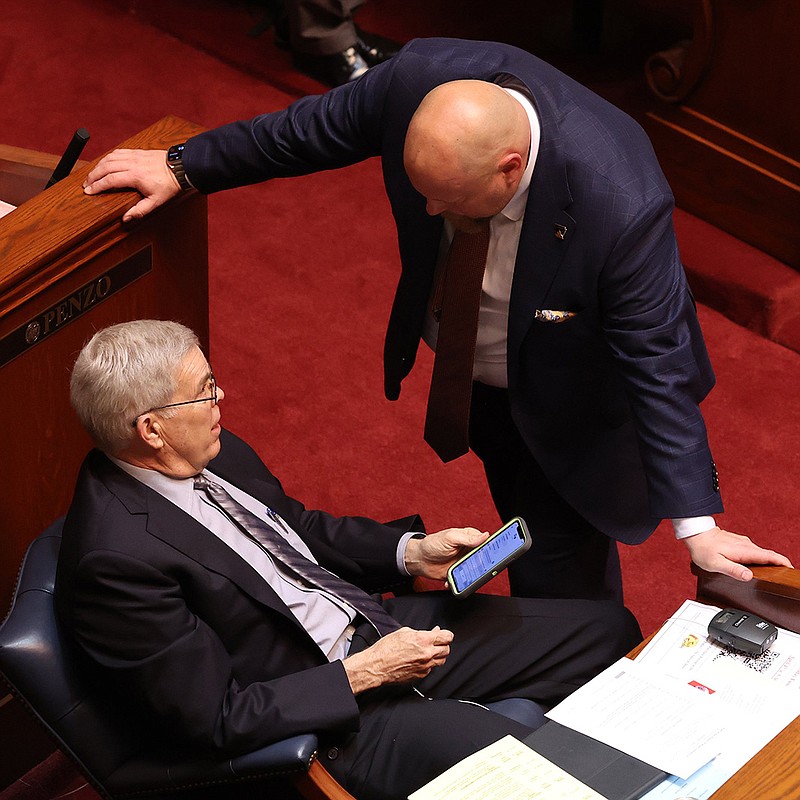The Arkansas Senate on Tuesday voted to send the governor a bill intended to create a process for challenging books available to children in public and school libraries.
After concurring with a House amendment, the Senate voted 24-5 to give final approval to Senate Bill 81 by Sen. Dan Sullivan.
The measure also would create an offense for "furnishing a harmful item to a minor" and strike a defense from state law intended to protect librarians from criminal prosecution under obscenity laws.
Afterward, Gov. Sarah Huckabee Sanders spokeswoman Alexa Henning said the governor will sign the bill.
Sullivan, R-Jonesboro, told the Senate the House's amendment to the bill made "good corrections."
"It doesn't change the intent of the bill at all," he said.
The House sponsor of the measure, Rep. Justin Gonzales, R-Okolona, has said the amendment was intended to make clarifying changes.
Under the amended bill, committees of librarians and legislative panels could require a school or public library to "relocate" challenged books within their library rather than "remove" them. Gonzales has said librarians would have to place these books in a part of the library not accessible to children.
Sullivan has said the bill would not create a list of banned books and noted a librarian would have to knowingly distribute material deemed obscene by a court before they could be prosecuted.
Supporters have said the bill is needed to protect minors and provide parents with more control over the books to which their children have access.
Opponents have raised concerns the bill could lead to children having restricted access to important literary works.
Critics also have said the challenge process could lead to libraries and local elected officials being hampered by costly objections. Those against the bill have said it would invest legislative bodies with judicial power and could disproportionally affect books written by and about LGBTQ+ people.
SB81 would require libraries to form committees to review challenges to books. Sullivan has said these committees would be subject to open meetings laws.
Under the bill, people could appeal decisions made by these committees to a body of local elected officials. In the case of a school library, this body would be the school board. For a municipal or public library, appeals would go to the governing body of the county or city.
A provision of SB81 would allow libraries to disclose confidential library records to the parent or legal guardian of a minor.
Under the bill, a person who knowingly provides a child with an item that is "harmful to minors" would be guilty of a Class A misdemeanor. A person also could commit this offense by transmitting through direct internet communication an item that is "harmful to minors" to a person they believe to be a minor.
Among other characteristics, an item that is "harmful to minors" must be found by an average adult "applying contemporary community standards" to have a "predominant tendency to appeal to a prurient interest in sex to minors." An average adult also must find the item depicts or describes "nudity, sexual conduct, sexual excitement or sadomasochistic abuse in a manner that is patently offensive to prevailing standards in the adult community with respect to what is suitable for minors." The material or performance would have to lack "serious literary, scientific, medical, artistic or political value for minors."
